The Soda Room: John Platten reveals shock concussion test results
New testing has revealed the heavy price former Hawthorn great John Platten has paid for the more than 30 concussions he suffered during his career.
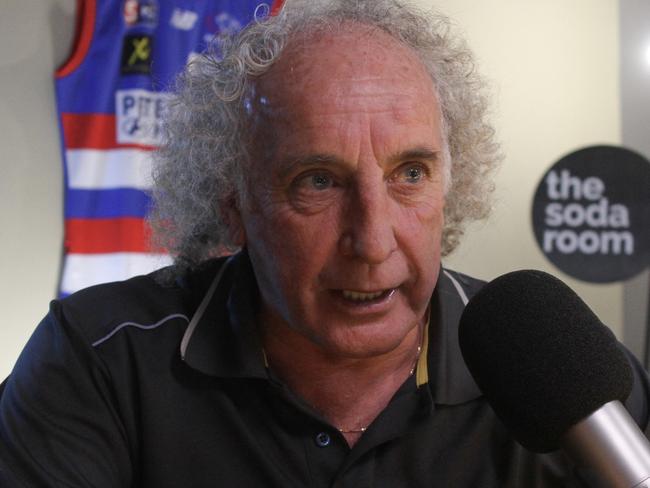
AFL
Don't miss out on the headlines from AFL. Followed categories will be added to My News.
Former Hawthorn great John Platten says the more than 30 concussions he suffered during his playing days have resulted in damage to 43 per cent of his brain.
Platten, who won the four premierships and a Brownlow Medal during a 258 game career with the Hawks, said the results from a magnetoencephalography (MEG) test earlier this year shocked him.
The Central District product, 59 revealed the test results to Mark Soderstrom in his podcast The Soda Room. Platten, who also won a Magarey Medal and played 107 games for the Bulldogs in the SANFL, is part of a class action Adelaide lawyer Greg Griffin is preparing against the AFL involving several players who suffered multiple concussions.
He also takes part in ongoing research into the long-term effects of concussion and its links to the degenerative brain disease known as chronic traumatic encephalopathy, of which he suffers symptoms.
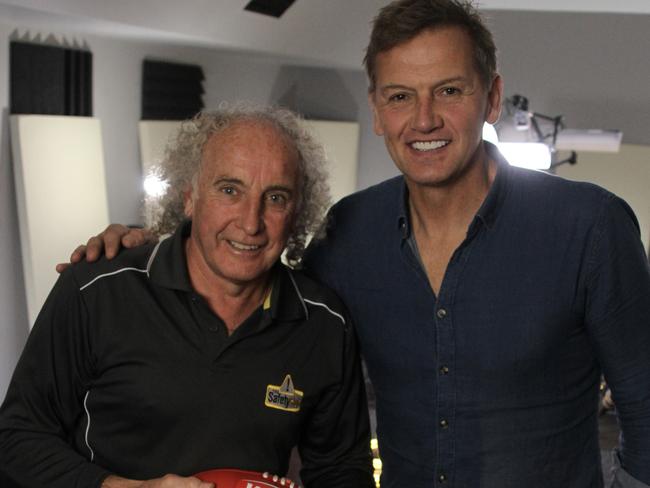
SCROLL DOWN TO LISTEN TO THE PODCAST
“People look at me as a happy go lucky sort of bloke, and which I try to be,” Platten says.
“But certainly over the last 10 years or so I get frustrated very quickly. I have my moods, I try not to show it in front of friends and family. I have trouble sleeping at times.
“And the thing, which I’m more worried about is headaches, getting really bad headaches. I will get those maybe once or twice a week.”
Platten says the symptoms, which also include forgetfulness, are frustrating and he is nervous about what the future holds.
“I wonder how I’m gonna be this time next year and this time in five years time,” he says.
“All our kids are getting married and having grandchildren – you want to make sure that you can enjoy that as well.
“At times it’s daunting. Nervous? Yes. Worried? Yes. But as long as I try and keep up all these tests to make sure that things are going in the right direction.”
JOHN PLATTEN SPEAKS TO MARK SODERSTROM IN THE SODA ROOM
The Soda Room is presented in collaboration with The Sunday Mail.
Below is an edited transcript of the podcast – listen in full in the player above.
Mark Soderstrom: Johnny Platten was one of the greatest rovers in the history of Australian football. Born and bred in Elizabeth in Adelaide’s tough north. He won the 1984 Magarey Medal and then he headed off to the big league with Hawthorn and became a footy icon. He won a Brownlow Medal and a truck load of premierships. Johnny Platten, the Rat, welcome along, great to have you here.
John Platten: Thank you Sodas, I’m really looking forward to this.
MS: Rat, you’ve talked a fair bit about your concussion. And I think it was sort of six or seven years ago when it first came out, you did a chat with Mark Robinson with the paper. How are things now?
JP: Oh, look, it’s been going okay. I have a test every year just to make sure that everything’s all going okay. It’s hard to get results, because you don’t really know the results until you pass (away), that’s the hardest part, at this stage with the CTE. So I had a test in February of this year, it’s called a MEG (magnetoencephalography) test. And it’s, it’s, it’s a test where you go into a room and you see a little light, you got to have your eyes open for 10 minutes, and then you’ve got to close your eyes for 10 minutes and open up your eyes again, with this little light. You’ve got to concentrate on this light for 30 minutes. And then we had to get out and get an MRI. And then those sorts of tests will go over to the UK, because this is where the MEG tests is. And a week later, it came back. And the results came back. And (concussion campaigner)
Peter Jess rang me and said, “Look, this is your results. It’s showing that you have 43 per cent damage of concussion in your brain (i.e., concussion had caused damage to 43 per cent of his brain), which was very daunting at the time.” I said, “Wow, so what do I do now?”
He said, “Look, everything’s okay, like, you’re not going to die, you’ve just got to keep on getting tested so that we know in five years time, 10 years time that you’ve gone through this test, and it’s getting better or is getting worse.”
So hopefully, it works out that I can, you know, in five years time, or 10 or 15, 20 years time that I’ve done all the right things now, and not done it in 20 years time when it might have been too late.
So I’m doing it now – getting all the tests done and getting the awareness out. The AFL are doing a good job now because it’s 12 days before you play a game.
It could be more but it really depends on the person as well when he plays the game. If he still gets headaches during the week, don’t play. If you feel that you’re okay, play after 12 days.
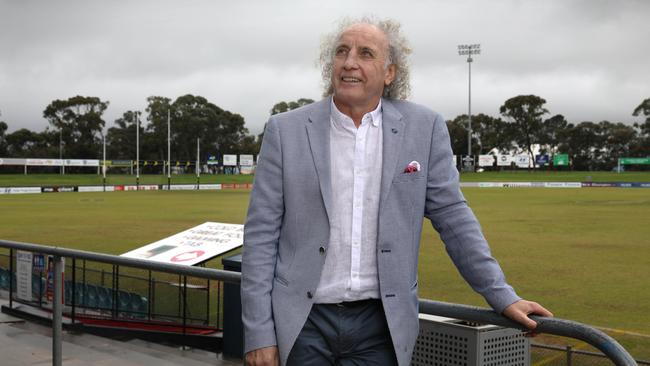
MS: When you play obviously things are a lot more brutal. You’ve got a bit of an idea of how many concussions you’ve probably had, haven’t you?
JP: Yeah, I sort of worked that out in a sense of, I played 18 senior years of league football, six here in Adelaide and 12 in Melbourne. So on average, I would probably get two a year. It could be more, it could be less but I just try to average it out. That’s probably about 36 times. It’s a lot. And to know what I know now, maybe I might have been a bit more conscious about, you know, playing the following week, then the following week, or, you know, because I still had headaches when I was playing.
MS: Tell us about day to day life, how do things affect you.
JP: Just sort of, over the probably 10 years … people look at me as a happy go lucky sort of bloke, which I try to be like that but certainly over the last, whatever, 10 years or so I get frustrated very quickly now, I have my moods, I try not to show it in front of friends and family. I have trouble sleeping at times. And the thing, which I’m more worried about is headaches, getting really bad headaches. I will get those maybe once or twice a week. And, and with that there, I just take a couple of Nurofen or, or Panadol, whatever, just to try and settle it, so that I’m up and about again.
MS: Still weekly? So pretty full on?
JP: Yeah, pretty full on. Until I sort of sit back and relax a bit and take a few little medications. And (I) forget things, you know, just little things. So where you left your keys, I know that we’re all getting older, but people tell me, these are the symptoms and, and they are the symptoms, I know they are because I’m starting to go through them, especially with mood swings. And so yeah, like, I’m just going to carry on and see how things go.
MS: Can you do rehab or training if they’re giving you things that you can actually do?
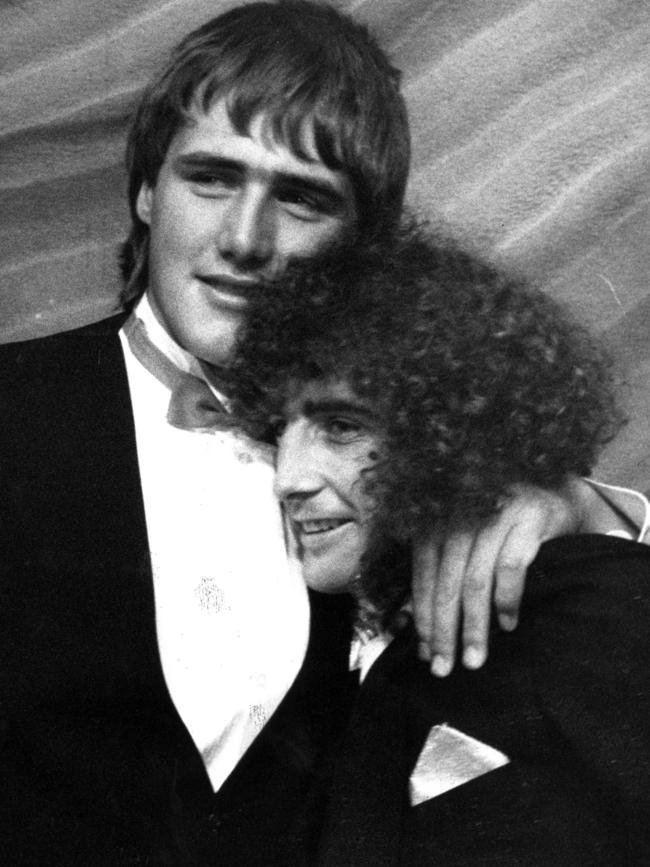
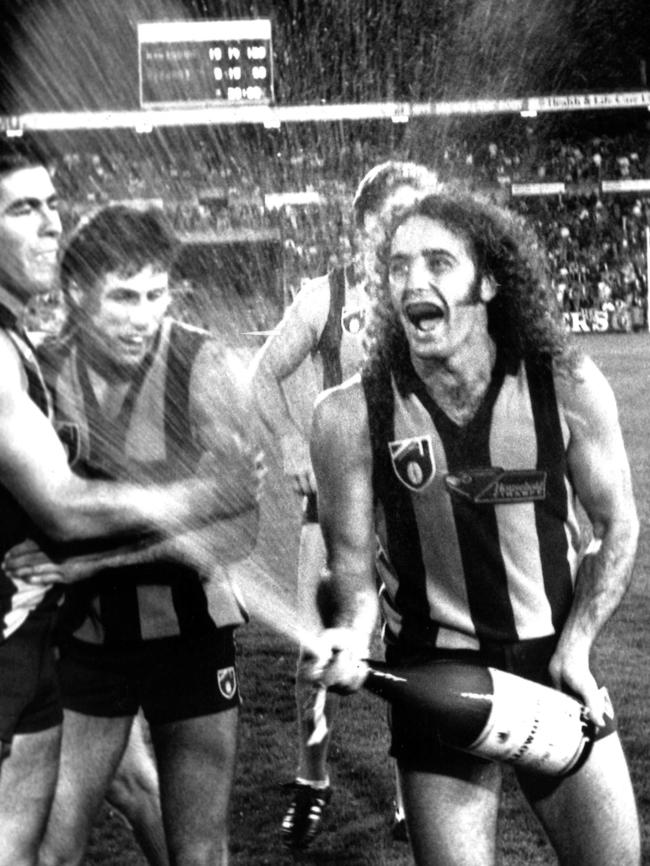
JP: I saw Peter Jess at the start of the year, and he’s given me a book to do – this big, thick book and just to remind things, just things that you keep on doing. So I try and do that, you know, once or twice a week just to try and get myself back into it. But everyday sort of stuff. Look, I kept myself busy. We’ve got a business, you know, I’m still tied up in football a little bit. I train Tuesday mornings, Thursday mornings with a couple of blokes. So yeah, I try to keep myself active. And so I don’t go into that, where I don’t do nothing. I’m trying to keep myself pretty active and to keep my brain turning over all the time.
MS: Rat as you said, I know, you’re always a really positive, happy man. And you’re obviously conscious of that, but mentally. Is it a struggle for you? Do you feel dark about it?
JP: I feel frustrated with it, you know, because I know there’s something which I’ve done and I’ve done it many, many times before, but now I struggle doing it. You know, it’s, it’s frustrating.
Something like when you tell your wife something and then the next day you say, “Look, I’ve got to … and she’ll go, ‘You told me that yesterday’.”
Look, I know that we all go through it and we have our times but it seems like it happens to me quite a bit. Or if you tell someone or you want to meet someone, I’ve got to write it all down now and make sure that I make the appointment and write it down.
And so I look through my diary and go through it. There’s times where I’ve said things over and over again. And my wife Leanne, she’s said, “John, you’ve told me that you told me that six times now.” And so I think to myself, “Oh god, I must be going crazy.”
It is frustrating. And for her as well.
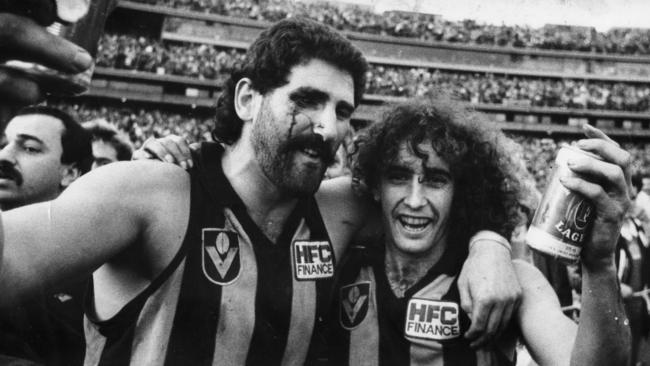
MS: Mentally though you’re in good shape though. You feel yeah, pretty positive?
JP: Yeah. I’ve always been pretty positive in life itself. People tell me you can’t do this, you can’t do that. But I just keep plugging away at. But life’s good. Yeah, our kids are fantastic. Got a great job, great business. So it’s all about keeping that even and that.
MS: Do you feel nervous about the future? Or are you getting the regular tests you feel like you’ll be able to stay on top of it?
JP: Yeah, I get nervous about it. Yeah, because I sort of wonder how I’m gonna be this time next year and this time in five years time. All our kids are getting married and having grandchildren and you want to make sure that you can enjoy that as well. Yeah, at times it’s daunting. Nervous? Yes. Worried? Yes. But as long as I try and keep up all these tests to make sure that things are going in the right direction.
MS: Would you do it all again the same?
JP: Yes, I would do it all again, but probably a little bit more smarter in the way that the game is played now, because it’s completely different to the way that we played it 20, 30, 40 years ago. And there’s protocols now, with trainers with doctors and physios and things like that. So maybe if that was around in those days, things would be a little bit different but, but no, I wouldn’t change it.
MS: You have no regrets?
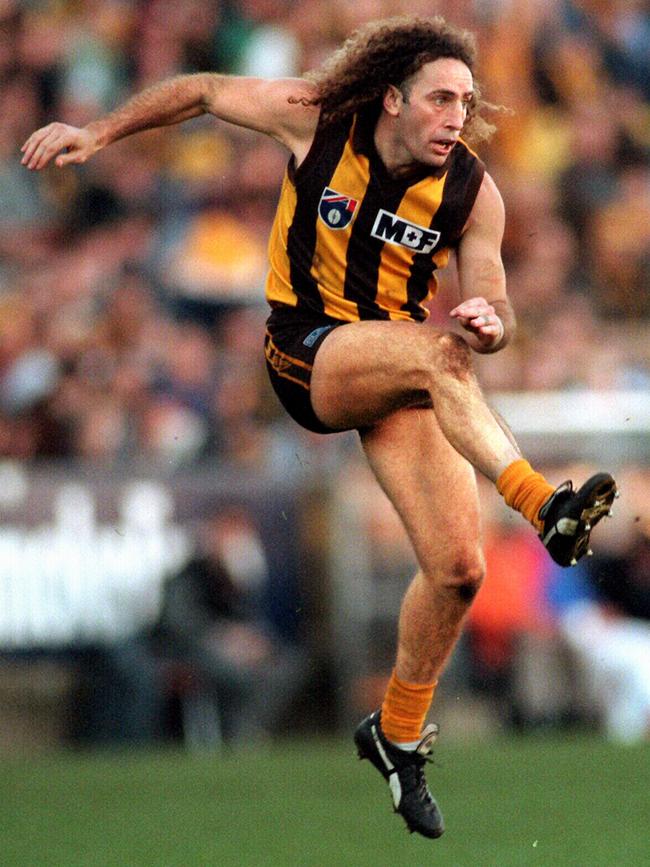

JP: I have no regrets on the footy field, no. It’s something I loved and enjoyed and got a lot out of it. And it’s taken me around the world and things like that, but, but knowing what I know now, it might have been a little bit different probably back in those days.
MS: But no one knew that at all, did they. You said 30 odd, maybe 40 concussions? You would imagine that you didn’t miss much footy. If that had to be nowadays, you wouldn’t have played anywhere near as many games.
JP: Yeah, that’s correct. So you know it’s something which I’m very grateful that you know, played over 400 games in total in SANFL and AFL, so pretty lucky to do that.
MS: What about for parents, now, who look at their kids and they see the concussion situation, would you ever advise kids not to play football?
JP: I wouldn’t advise them not to play football but just try and be a bit careful. I know that’s hard to say coming from me but I think that as long as they follow the right protocol if they do get badly hit on or concussed. So I think you’ve just got to make sure that your child’s well and knows what’s going on and what’s happened and go through the right rest for the brain. So it’s very, very important to do that.
MS: Rat, it’s been a treat. I could sit here and talk to you for ages, I appreciate you being so open and honest with everything. And wish you all the best with the concussion stuff and with all your testing. I’ll tell you what your memory of all this sort of stuff is still amazing. I’m glad you can remember four flags, a Brownlow, a Magarey and everything else you’ve done.
JP: Thanks, Sodas, loved it.




